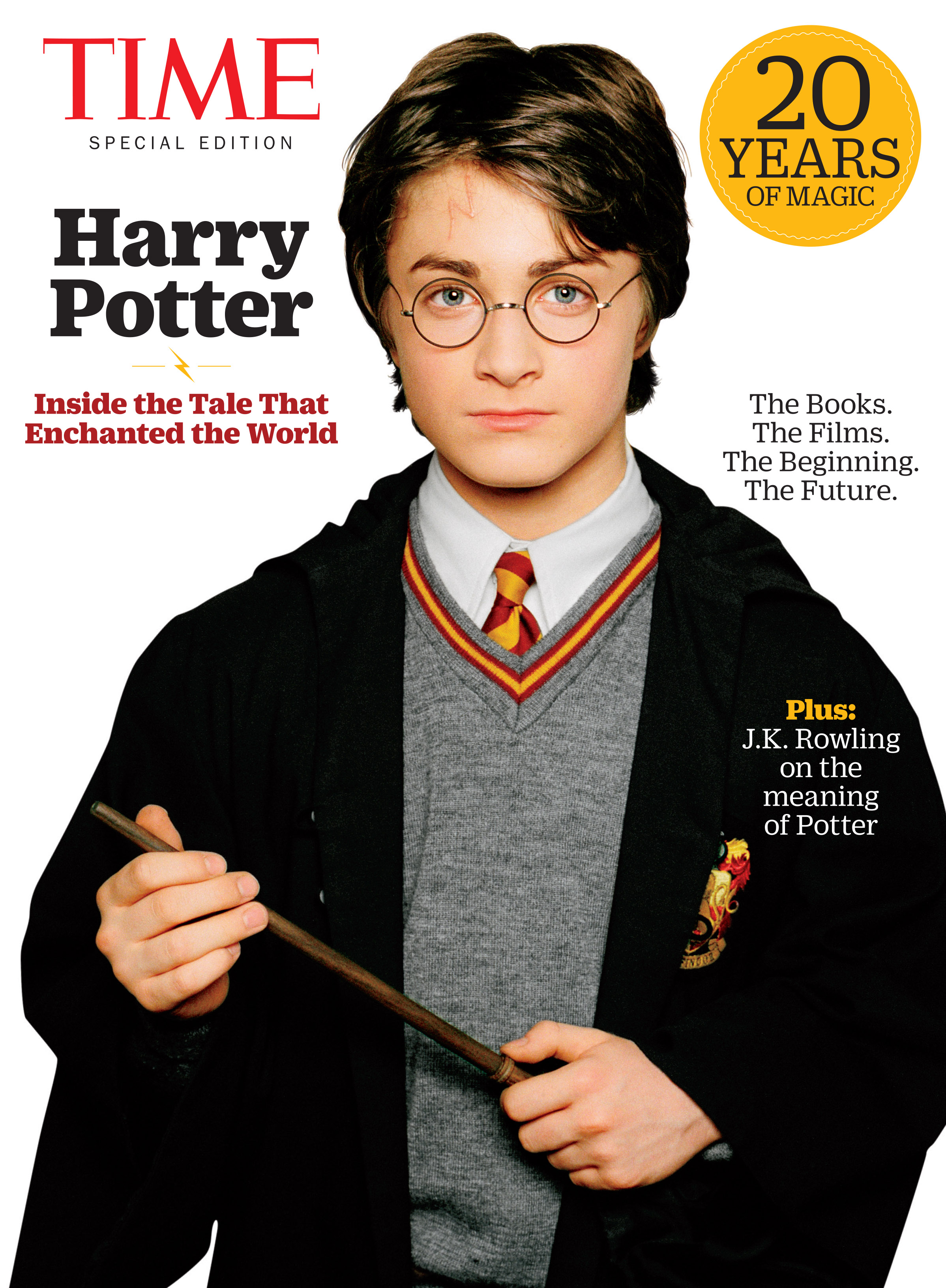In the summer of 1997, Tony Blair was settling in as the U.K.’s new prime minister, Bill Clinton was working to pass the Balanced Budget Act, Timothy McVeigh was convicted of the Oklahoma City bombing, the Pathfinder probe landed on Mars, Gianni Versace was murdered in Miami Beach, and Puff Daddy’s “I’ll Be Missing You” knocked Hanson’s “MMMBop” off the No. 1 spot on Billboard. It was also the summer when the world met Harry Potter.
Early reviews of J.K. Rowling’s series rightly compared her to the masters of fantasy writing. Like C.S. Lewis and J.R.R. Tolkien, she took inspiration from a wide range of sources: Christian theology, folklore, Greek and Shakespearean tragedy, Arthurian legend, Dickensian plotting and 20th-century history (especially the rise and fall of Hitler) all shaped the story of the Boy Who Lived. Yet these factors combined to create a work so original and iconic that it’s easy to see its influence on an entire generation of successors and imitators.
MORE: 10 Major J.K. Rowling Revelations About the Years Between Harry Potter and Cursed Child
For all her cerebral elements, Rowling was also a master of the mundane. What makes for a quirky shop? A cozy pub? A thrilling sports match? Her whimsical answers to these questions played as big a role in making Harry Potter a cultural behemoth as did her interrogations of morality. As many critics and enthusiasts have noted, part of the genius of the books is that because Harry has been raised in total ignorance of the wizarding world, he discovers its structures and vagaries right alongside the reader. Like our own world, it is full of variation, tempting readers to ask themselves how they’d fit in. Children who read the books wonder what house they’d be placed in if they attended Hogwarts, what kind of wand they’d have, what their Patronus would be.

Yet as personal as the series feels — and to the most devout fans, it’s very personal indeed — it ultimately succeeds because the story is universal. Harry’s path closely follows Joseph Campbell’s concept of the Hero’s Journey, from the call to adventure to the triumph over death. It’s the arc found in works from the Bible to Star Wars.
Harry’s tale is further rooted in practical questions of what it means to be a good person in the contemporary world. Rowling emphasizes that family is paramount: Harry’s bond with his deceased parents, particularly his mother, is vital. But she concedes that family can also be the pits, as the dreadful Dursleys prove. She celebrates Hermione’s diligence as a student but also acknowledges that book smarts won’t take you very far without friendship and courage. She preaches the necessity of resisting evil. And she shows that goodness is not a state of mind but a choice, made again and again, to do the right thing. The Harry Potter series has become almost like a bible for readers who treat its lessons as morality plays. “We’ve all got both light and dark inside us,” as Sirius Black tells his godson. “What matters is the part we choose to act on.”
Twenty years later, the world looks very different from that first summer with Harry. Strictly in terms of Potter books, the series has been over for a decade. Though the 2016 publication of the script to the play Harry Potter and the Cursed Child was celebrated with midnight release parties reminiscent of the original series’s publication, this time many readers opted to stay home and hit “download” on their e-readers — which were only just beginning to be available when the final book, Harry Potter and the Deathly Hallows, came out in 2007.
But some things haven’t changed. As the first generation of young Harry fans has grown up and begun to have children of their own, a new crop of readers ages into the series, dreaming of enchanted dinners in the Great Hall and evenings spent in the Gryffindor common room. New wizarding stories will continue to arrive on the Pottermore website and in the form of four more Fantastic Beasts and Where to Find Them movies that are due in the coming years.
For decades or even centuries to come, children will begin their encounter with the first sentence that was printed 20 years ago: “Mr. and Mrs. Dursley, of number four, Privet Drive, were proud to say that they were perfectly normal, thank you very much.” Thank goodness nothing else about Harry Potter is.
Excerpted from Harry Potter: Inside The Tale That Enchanted The World.
More Must-Reads from TIME
- Donald Trump Is TIME's 2024 Person of the Year
- Why We Chose Trump as Person of the Year
- Is Intermittent Fasting Good or Bad for You?
- The 100 Must-Read Books of 2024
- The 20 Best Christmas TV Episodes
- Column: If Optimism Feels Ridiculous Now, Try Hope
- The Future of Climate Action Is Trade Policy
- Merle Bombardieri Is Helping People Make the Baby Decision
Contact us at letters@time.com